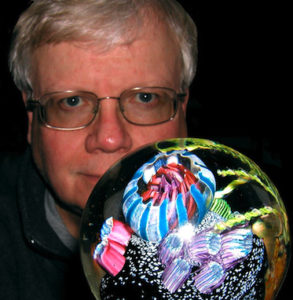John Randall’s work caught my eye because it’s in an area that is completely unfamiliar to me — narremes. I’m looking forward to learning about this field through this Q&A and John’s upcoming manifesto, Narremes. I also have a soft spot for him because he shares two of his names with my son, John Randall Hansen. This Q&A will run over the next several days.
Bio: John Randall (Hart) is a Subject Matter Expert at IBM, a former writing professor at colleges in Oregon and Colorado, and a practicing narratologist in his spare time. He holds a B.A. in anthropology, an MFA in creative writing, and has published fiction, poetry, and essays. His website — Narratology.info — which he hosts under his pen name of John Randall — focuses on ways we make meaning in our lives by telling stories. He has been invited to present some of his ideas on uses of narrative in recovery at this year’s Iowa Advocates for Mental Health Recovery Conference. His presentation is entitled “Narremics: Ancient Keys to Making Meaning in Our Lives.”
professor at colleges in Oregon and Colorado, and a practicing narratologist in his spare time. He holds a B.A. in anthropology, an MFA in creative writing, and has published fiction, poetry, and essays. His website — Narratology.info — which he hosts under his pen name of John Randall — focuses on ways we make meaning in our lives by telling stories. He has been invited to present some of his ideas on uses of narrative in recovery at this year’s Iowa Advocates for Mental Health Recovery Conference. His presentation is entitled “Narremics: Ancient Keys to Making Meaning in Our Lives.”
Q&A with John Randall, Question 1:
Q: The storytelling movement seems to be growing explosively. Why now? What is it about this moment in human history and culture that makes storytelling so resonant with so many people right now?
A: In my upcoming Narremes Manifesto, I talk about a turning point around 40,000 years ago when the first cave art appeared in Europe. These extraordinary paintings at Chauvet, Lascaux, Altamira, and numerous other sites, depicting ancient human activities, especially the hunt, clearly illustrate a knack for storytelling that was already quite sophisticated, and which I believe goes back, at the very least, to that dim period when language itself began to develop.
Similar turning points in storytelling occurred with the appearance of The Iliadand The Odyssey, with The Canterbury Tales and The Inferno, Don Quixote, Hamlet, Robinson Crusoe, Anna Karenina, Madame Bovary, Huckleberry Finn, Moby-Dick, To the Lighthouse, The Shipping News. The list is long and far more complex than I can even suggest here.
The species of humans — our own — that began storytelling in those caves is at another turning point today. We’re a species in recovery. The clash of war and the hunt is being replaced by stories that emphasize meaning and hope over violence and conflict. If we are to survive into the next century and beyond, these are the stories that we must tell, and that is precisely what I think is at the root of the storytelling phenomenon we’re seeing today. Our best stories generate the necessary light and energy we need to accomplish a full recovery of what is “most human” in us all.
